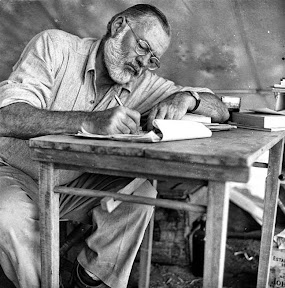Two Books in Conversation
In an ancient conversation two-thousand five hundred years ago between friends, now called The Republic, recorded by the Greek philosopher Plato, Socrates discusses the problem of whether human beings are capable of educating true lovers of wisdom and the possibility of living within a just society. In the course of the dialogue, there is a section in the seventh part, after a discussion on the degrees of knowledge, when Socrates and his friend Glaucon speak analogously of life is like a cave, a dark shadow of the real world. Socrates imagines the cave as “an underground cave-like dwelling place” (514 A).
“The Allegory of the Cave”
As Socrates discusses the cave-dwelling to his friend, He conceives of people living in a cave, with their “legs and necks fettered from childhood,” so that they remain in the same spot, able to look forward only, and prevented by the fetters from turning their heads” (514 B). They do not realize that behind them is a fire. Between them and the fire are fake animals and statues, reproductions in stone or wood carried by men that are cast in shadow form on the wall by the fire “like a screen at a puppet show in front of the performers who show their puppets above it” (514 B). They imagine one prisoner being freed from this cave-like existence and finding light in the real world. When the one prisoner adjusts to the light in “the real world” and sees that it is beautiful he retreats back into the cave to free his friends, to enlighten them. But they rebel against him, comfortable in their lethargy and the convenient darkness, so they kill him. This story is popularly known as “Plato’s Cave” or the “Allegory of the Cave.” It has become a hallmark image of Western Philosophy and the ineluctable pursuit for the quest for truth.
Invisible Man
In 1952, a story was written about an unnamed, young, naive black man. The imagery of shadow and invisibility, imprisonment and freedom also mark this story as it did the ancient Greek allegory. After receiving a prize for a speech he gave to his high school somewhere in the South, the unnamed protagonist and a group of black students are invited to an underground meeting with the prominent white men of the town. After witnessing a shameful striptease by a young white girl with a tattoo of the American flag on her belly, the black boys are crowded into an open rink and forced to box in a battle royal. Afterward, the white men beckon the story’s protagonist to the crowded, bloody center to deliver his prize speech. When he proceeds to mention “social equality,” a forbidden phrase, the tension in the room is tightened, as if they would kill him if he advanced any further notion of racial equality. Thus the story of the Invisible Man begins. He goes to college up North. He joins a group of communist sympathizers called the Brotherhood. He is duped and used by both. After he has been jerked by the educational and political systems -- systems in general -- he retreats into the cave, for enlightenment. He finds shelter in a basement of an all-white apartment building in New York City, his cave. He goes into the cave, as he says, “The point now is that I found a home -- or a home in the ground, as you will” (5).It is a cave of light, for he has strung the walls and floor with bright filament light bulbs. It is an act of passive aggression, though. It is his punch in the face to the outside, hegemonic white order. The protagonist imagines the above landlords wondering how so much electricity is being expended. And while the light is being sucked from Monopolated Power and Light, our hero listens to Louis Armstrong and rhapsodies into a metaphysical reverie to match the best of philosophical discourses.
Thinking Both Stories Together
Both stories, while obviously different, are parallel stories that think together issues of justice, education and as well gesture toward some answer to the question of what is truth and justice. It is not presumed that either story somehow miraculously interprets the other in some kind of fantastical hermeneutical wonderworld. But rather, the reason to think “Plato’s Cave” with Invisible Man is to ponder a bit about the central question(s) each text poses. So, what I will attempt to do in this paper is to discuss parallels of thought and imagery in both texts and the ways they both play and collide and converge images with going down into a “cave” and coming back into the “light.” In this way, hopefully, the exploration will provide a lens to discover plenteous fruits in both stories. We will look at the battle royal scene in Chapter One (which can be seen as an entire piece in of itself, separate from the novel, especially since it is highly anthologized and taught as a “short story” and also we will look at the sections in the novel that describe the narrator beneath a high tower residential apartment building in New York City.











